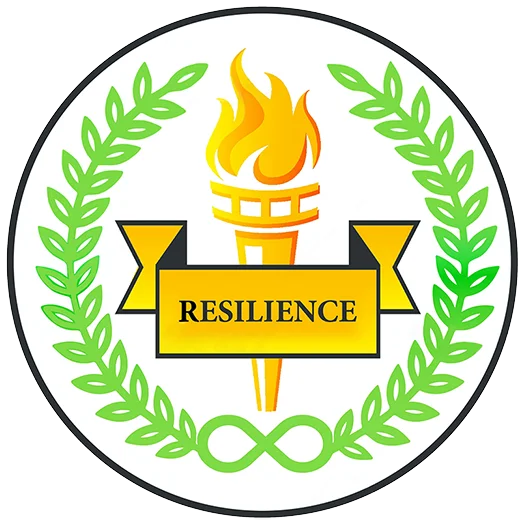Keanu Reeves is not just a Hollywood star known for roles like Neo in The Matrix or the relentless assassin in John Wick—he’s become a symbol of quiet strength, humility, and a deep, almost spiritual resilience that touches the hearts of millions. His life reads like a modern-day fable, where tragedy and success intersect, and through it all, Keanu remains a beacon of wisdom, rooted in philosophy that transcends mere celebrity.
A Childhood of Wanderings
Keanu’s story begins far from the glamor of Hollywood, in Beirut, Lebanon, where he was born in 1964. His early years were anything but stable. His father left when he was just three, and young Keanu, along with his mother and sisters, moved from place to place—from Hawaii to New York, and eventually settling in Toronto. Constantly shifting between homes and schools, Keanu struggled with dyslexia, making the conventional path of education difficult. But perhaps these early years taught him something profound—that life, like his childhood, was uncertain, and to survive, one had to adapt and accept.

As he grew older, life’s challenges continued to knock at his door. In 1993, one of his dearest friends, actor River Phoenix, tragically died from a drug overdose. In 1999, his daughter with actress Jennifer Syme was stillborn, a loss that could shatter anyone. Two years later, Jennifer herself died in a car accident. Yet Keanu never let bitterness consume him. Instead, he carried these tragedies with grace, as if understanding that suffering was an inevitable part of life’s tapestry.
A Life Steeped in Philosophy
At the height of his fame, Keanu was cast in a role that would define a generation—Neo in The Matrix. The film wasn’t just another action blockbuster; it was an exploration of existential questions about reality, free will, and self-discovery. Neo’s journey mirrored Keanu’s own philosophical inquiries. Much like his character, Keanu had a quiet fascination with the deeper questions of life, influenced by Eastern philosophies like Buddhism and Taoism. These teachings emphasize the power of acceptance, mindfulness, and compassion—all qualities that Keanu seems to embody.

Despite his fame, he shunned the excesses of celebrity life. He rides the subway like any regular person, chats with fans on the street, and has even been seen giving up his seat to strangers. The Keanu you see in public is not a man basking in the glow of his success but someone who understands the fragility of human life, who walks lightly in the world with a deep sense of humility. His simple, grounded lifestyle echoes the Taoist ideal of wu wei—effortless action—where one moves through life without force or ego, in harmony with the natural flow of things.
The Art of Acceptance
Keanu’s life story reveals a deep philosophical thread: the acceptance of suffering. In the face of personal tragedies that would break most people, Keanu has shown an incredible capacity for resilience. When asked in an interview what he thought happens after death, his answer was poignant in its simplicity: “I know that the ones who love us will miss us.”
This is the essence of Keanu’s outlook—accepting that pain and loss are a part of the human experience, and while we cannot avoid suffering, we can choose how we respond to it. In Buddhism, this idea is central; the notion of impermanence, or anicca, teaches that everything in life is in a state of constant change. Rather than resist this, Keanu seems to have embraced it. His calm demeanor, his compassion for others, and his ability to stay present despite the storms of life all speak to a deep understanding of this truth.
A Compassionate Soul
While Keanu’s public image is one of stoicism, beneath the surface lies a heart full of compassion. Over the years, he has quietly donated millions to cancer research and children’s hospitals, never seeking attention for his generosity. His co-stars speak of him as one of the most kind-hearted people in the industry, often recalling small acts of kindness—like giving up part of his salary so that the crew or lesser-paid actors could be compensated better. These are not just the actions of a generous man but of someone who sees himself as part of a larger whole, bound by the same shared humanity.
Keanu’s compassion stems from the same philosophy that has guided him through hardship. In Taoism, there is a concept known as pu, or the “uncarved block,” which symbolizes the pure, unaltered state of being. Keanu, with his unassuming nature and gentle spirit, reflects this idea—he is a man who remains true to himself, unaffected by fame or materialism.

Conclusion: The Fable of Keanu
Keanu Reeves’ life story reads like an ancient parable—one of resilience, humility, and deep compassion. He teaches us that while suffering is unavoidable, how we choose to respond defines our character. He reminds us that success is not measured by wealth or fame but by the kindness we show others and the peace we find within ourselves. Through his life, Keanu has quietly shared a profound philosophical message: in a world filled with uncertainty, love, connection, and acceptance are what truly matter.
Keanu Reeves is, in essence, walking through life with wisdom, kindness, and a quiet strength that will continue to inspire for generations to come.

